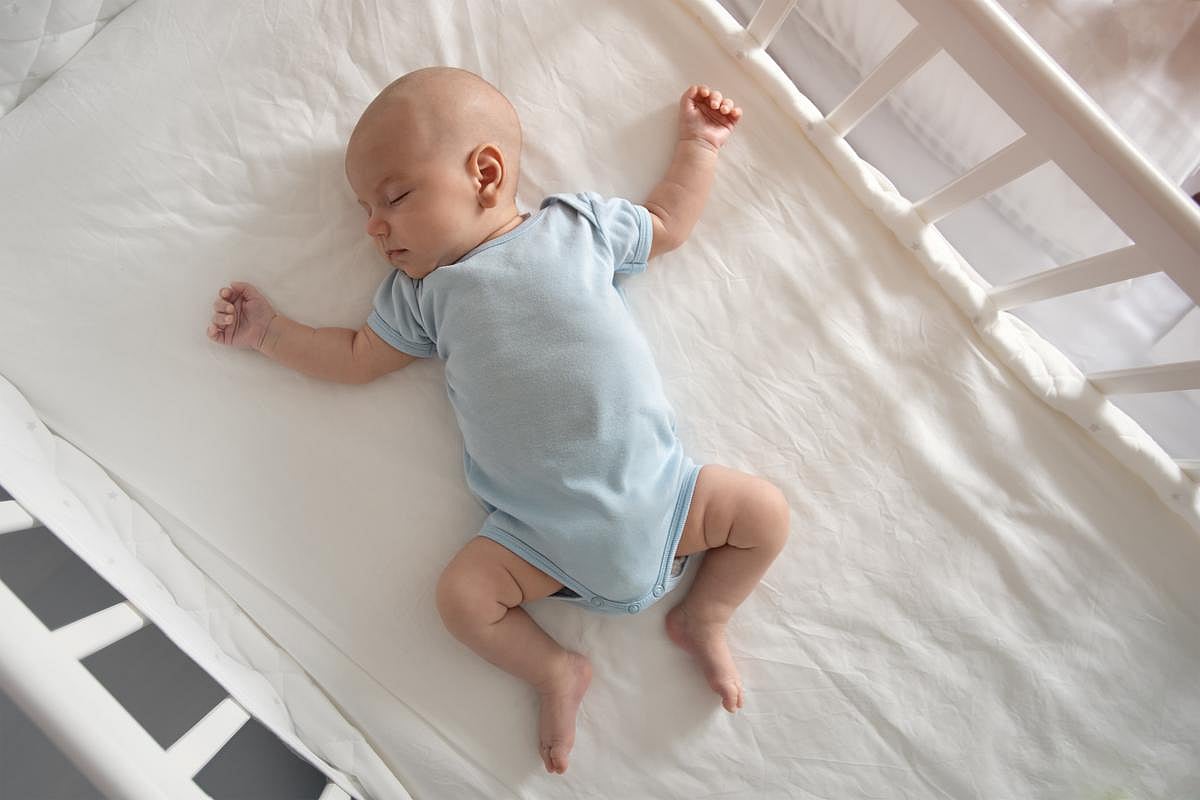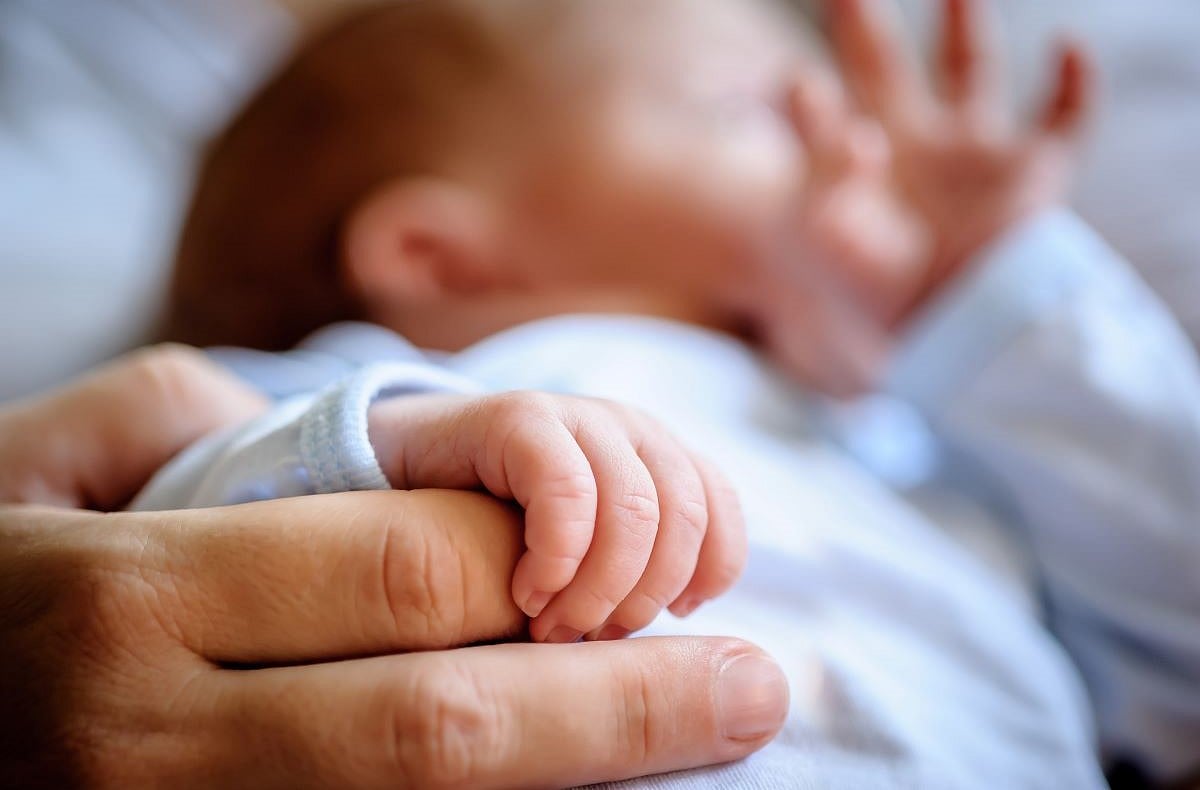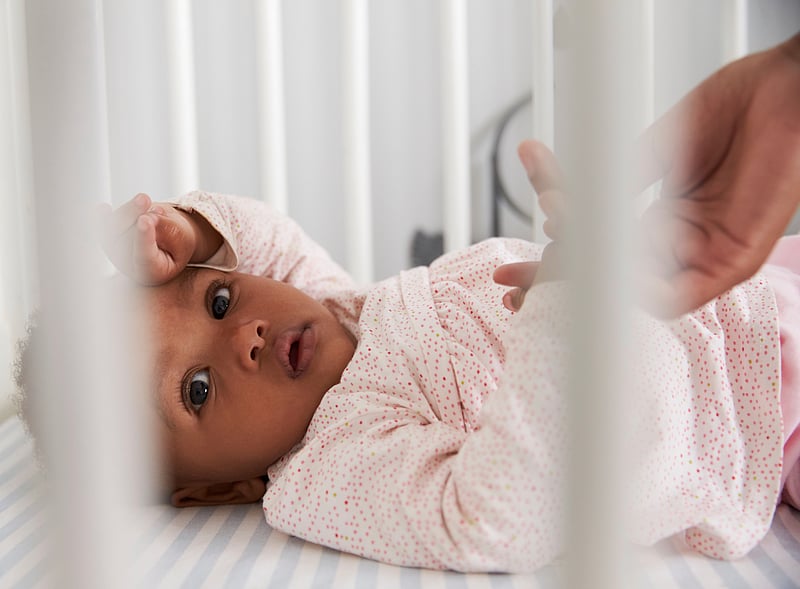Get Healthy!
Results for search "Sudden Infant Death Syndrome (SIDS)".
Health News Results - 14
Despite decades of campaigns highlighting the "baby on back" recommendation for safe infant sleep, 12% of 4-month-old babies in the United States are still put to bed lying on their sides or tummies, a new report finds.
That number rises to 19% among infants aged 9 months and 23% among 1-year-olds.
Putting an infant to bed in a "non-supine" position raises the risk of breathing dif...
- HealthDay Reporter
- Ernie Mundell
- |
- December 12, 2024
- |
- Full Page
Each year, an average of 174 U.S. kids under the age of 5 lose their lives over causes linked to nursery products.
Many of these tragedies could be prevented, and the Consumer Product Safety Commission (CPSC) on Thursday issued a list of products deemed most hazardous.
Leading the list by far: Any soft bedding added into cribs, bassinets and playpens. These products alone were part ...
- HealthDay Reporter
- Ernie Mundell
- |
- September 20, 2024
- |
- Full Page
Most people have heard of sudden infant death syndrome (SIDS), where babies die during sleep for reasons that aren't always clear.
But every year, about 400 cases of similar "sudden unexplained deaths in children" (SUDC) occur in the United States among a slightly older age group -- toddlers.
New research, involving video from baby monitors and security cameras, may reveal a cause f...
- HealthDay Reporter
- Ernie Mundell
- |
- January 5, 2024
- |
- Full Page
It's always a good time to check your baby's sleep space.
The U.S. Consumer Product Safety Commission (CPSC) has released its annual report on the topic, showing that risks associated with nursery products continue to be high. More than 160 babi...
- HealthDay Reporter
- Cara Murez
- |
- September 26, 2023
- |
- Full Page
Experts have long recommended breastfeeding for its many benefits for infants, but a new study puts a hard number on breast milk's lifesaving effects.
Breastfeeding is associated with a 33% reduction in infant deaths in the first year, according to the study of nearly 10 million U.S. babies.
The research looked at babies born in 48 states and Washington, D.C. between 2016 and 2018...
- HealthDay Reporter
- Cara Murez
- |
- August 2, 2023
- |
- Full Page
Researchers have found another clue as to why some infants die suddenly in their sleep, and it's related to a faulty chemical receptor in the brainstem.
Experts said the findings provide another puzzle piece in understanding the root causes of sudden infant death syndrome (SIDS).
By examining autopsied brain tissue, researchers found that a particular chemical receptor was altered ...
- HealthDay Reporter
- Amy Norton
- |
- May 25, 2023
- |
- Full Page
Sleep-related infant deaths are one of the leading causes of non-natural infant deaths, but a pediatric expert offers advice for keeping babies safe when they're sleeping.
"Sleep position and sleep environment are very important factors to look at when thinking about infant sleep safety,"said Angie Hayes...
- HealthDay Reporter
- Cara Murez
- |
- April 1, 2023
- |
- Full Page
During the first year of the pandemic, the United States saw a spike in the number of Black infants who died suddenly -- worsening a longstanding disparity, a new government study finds.
The increase was seen in what's called sudden unexpected infant death, or SUID. It's a term used when a baby younger than 1 year dies from no immediately obvious cause, often during sleep. SUID includes c...
- HealthDay Reporter
- Amy Norton
- |
- March 13, 2023
- |
- Full Page
Infants exposed to maternal smoking during pregnancy are more than five times more likely to die unexpectedly compared to babies of nonsmokers, a new study says.
"The message is simple. Smoking greatly elevates the risk of sudden unexpected infant death," said lead study author
Researchers have long struggled to figure out what causes a seemingly healthy baby to die suddenly in the first year of life, with an array of possible genetic and environmental factors to choose from.
Now a large, Danish study has found that in families where one child has succumbed to sudden infant death syndrome (SIDS), a younger sibling's risk appears to quadruple.
"I am not ver...
- HealthDay Reporter
- Alan Mozes
- |
- January 26, 2023
- |
- Full Page
Infant head-shaping pillows are not approved by the U.S. Food and Drug Administration and should not be used, the agency warned Thursday.
The pillows can create an unsafe sleep environment for infants, potentially contributing to the risk of suffocation and death.
Marketed as changing an infant's head shape or symmetry or claiming to treat other medical conditions, they have no demo...
- HealthDay Reporter
- Cara Murez
- |
- November 4, 2022
- |
- Full Page
When putting baby to bed, skip the cozy comforters, stuffed animals and pillows.
The U.S. Consumer Product Safety Commission (CPSC) says bare is best -- just a sheet. And, it urges, always put baby down for a rest in products specifically designed for their sleep, including cribs, bassinets and play yards.
"What is comfortable for the way adults sleep, isn't
New infant sleep guidelines from the American Academy of Pediatrics (AAP) stress that parents make sure their infants sleep alone on their back on a flat surface and not in bed with mom or dad.
In addition, th...
- HealthDay Reporter
- Steven Reinberg
- |
- June 21, 2022
- |
- Full Page
Every year in the United States, a few hundred children die suddenly and without explanation. Now researchers have found gene variants that may contribute to some of those tragic deaths.
The hope, experts said, is that understanding the underlying mechanisms will eventually lead to ways to save lives.
Since the 1990s, the term











